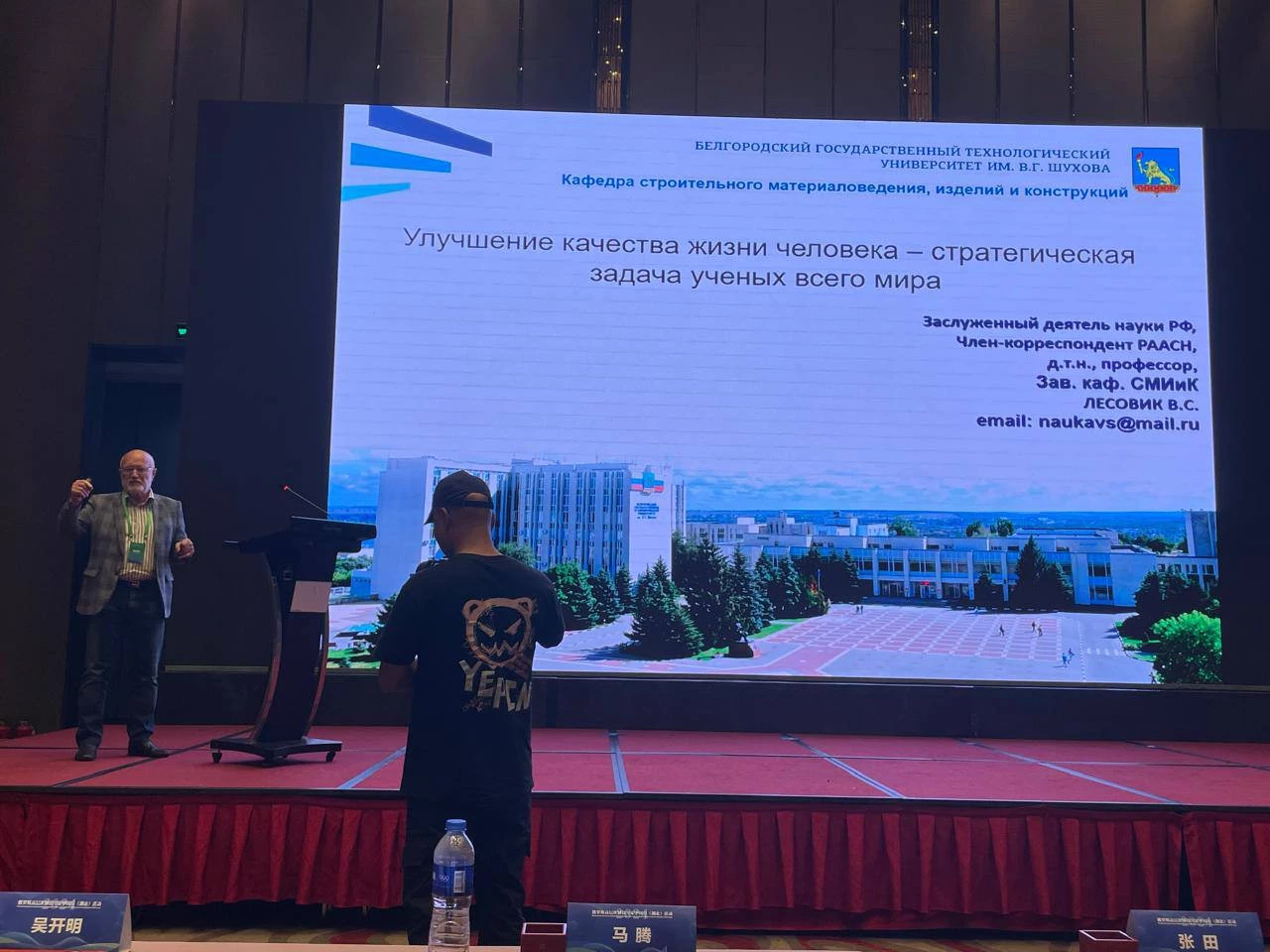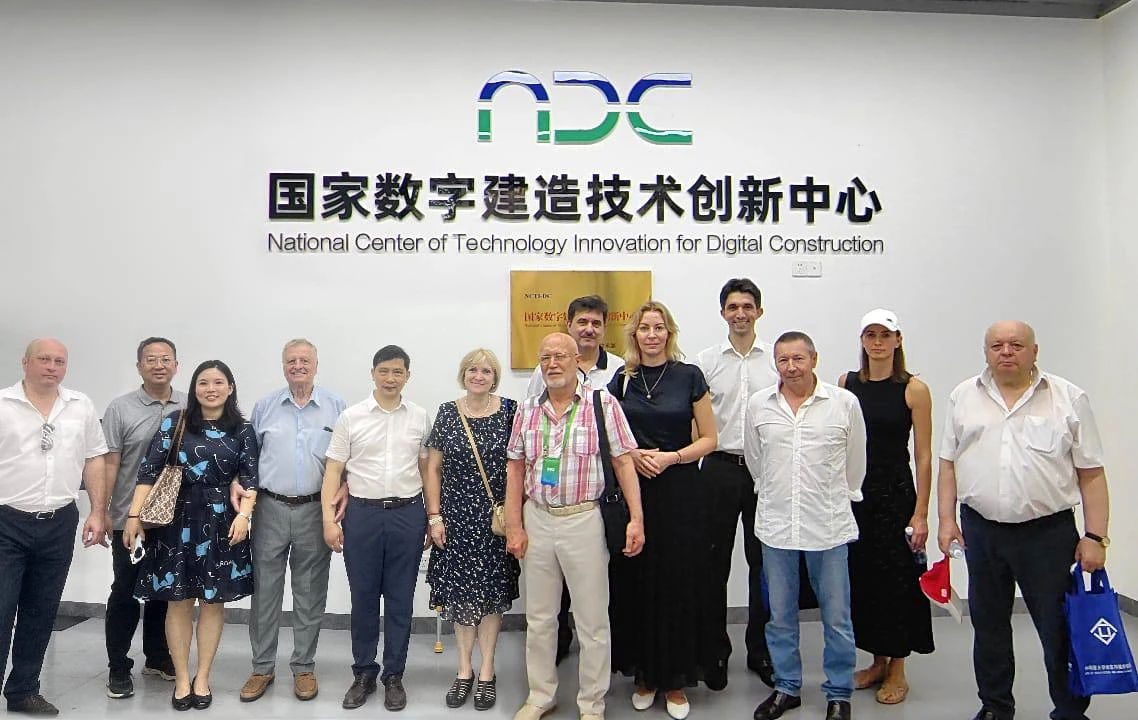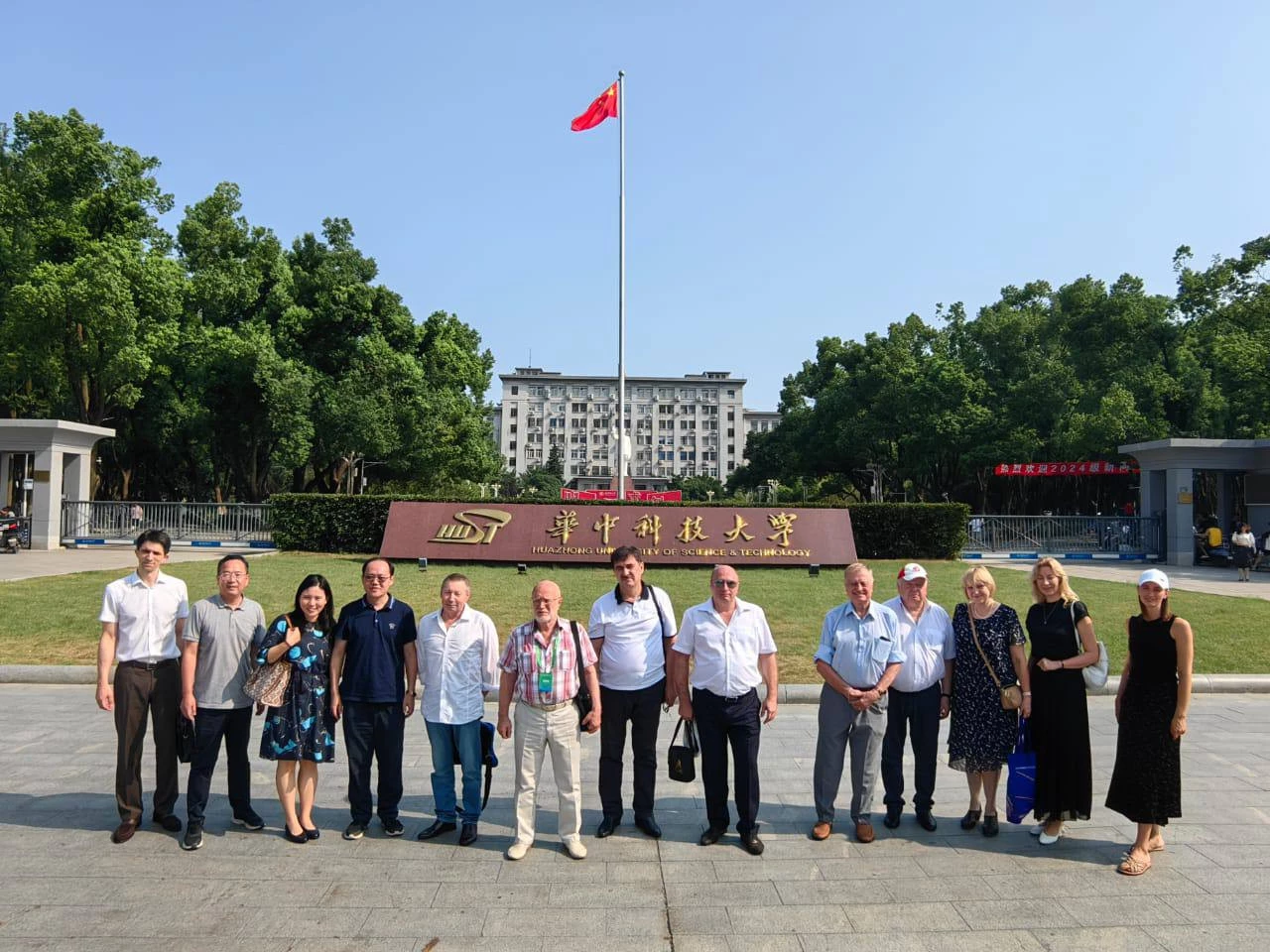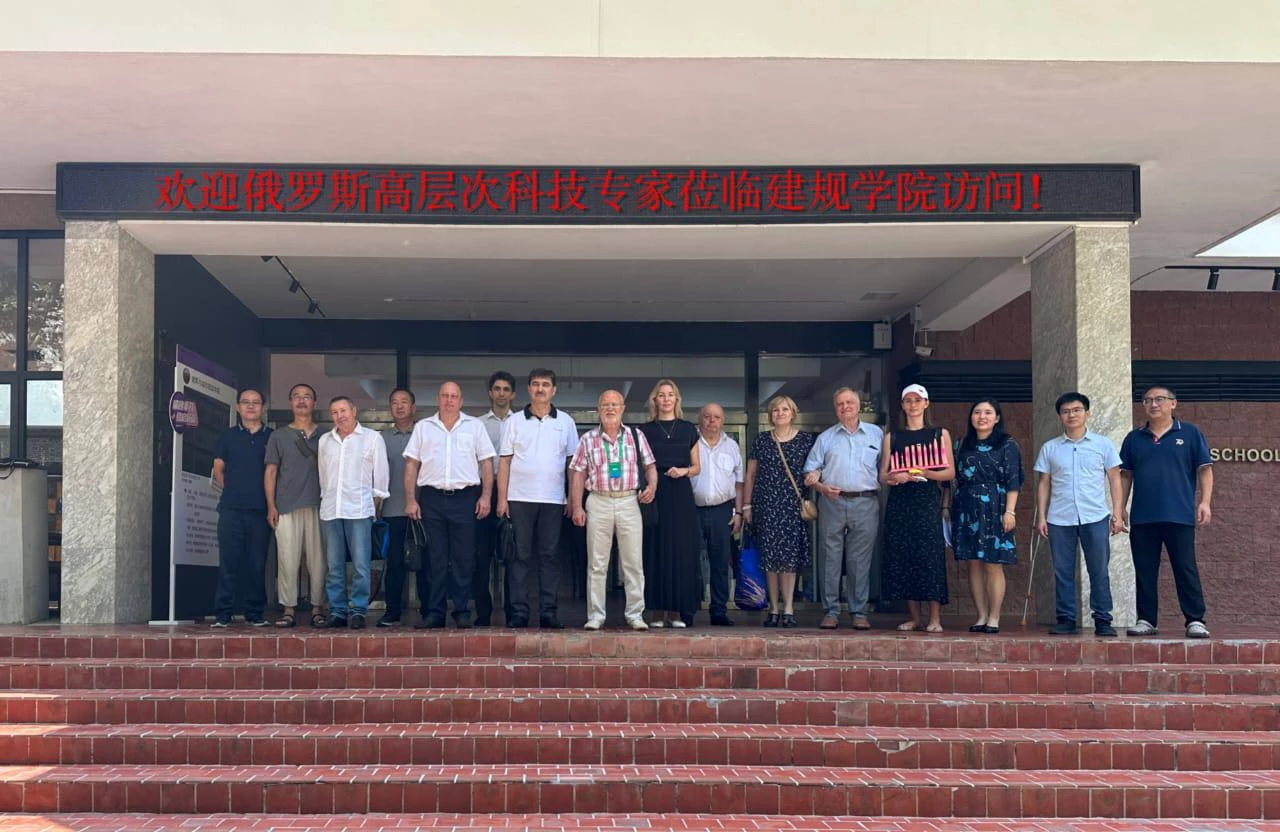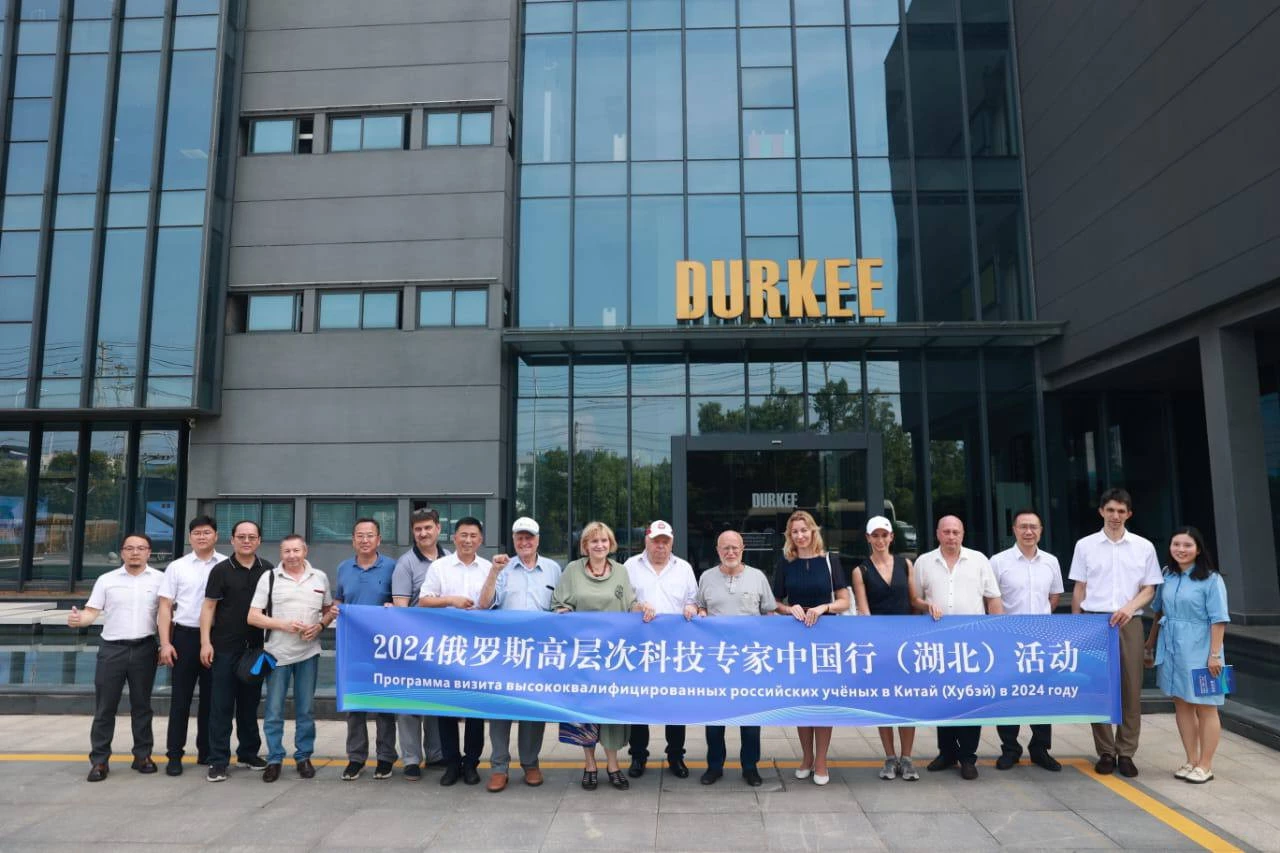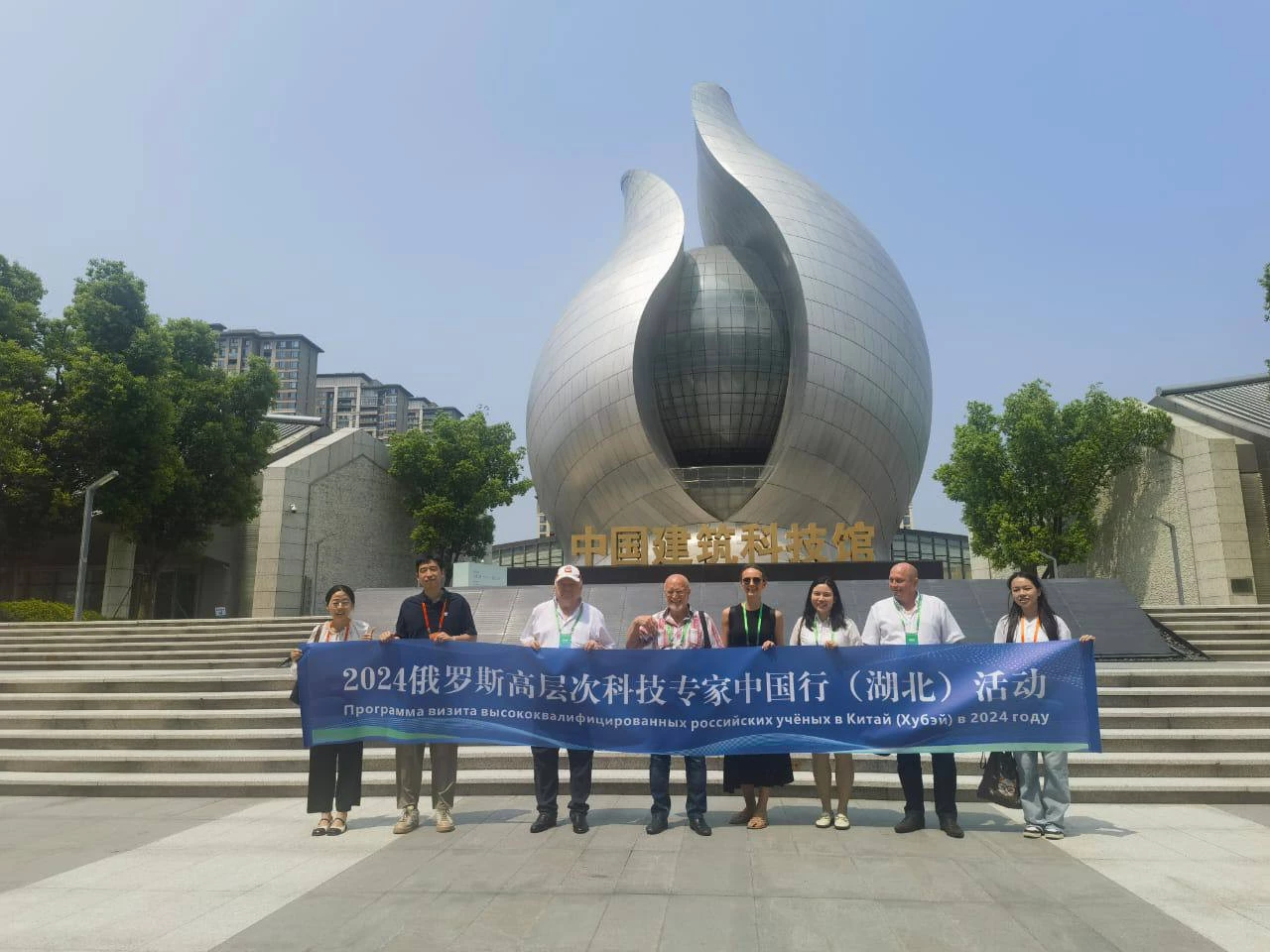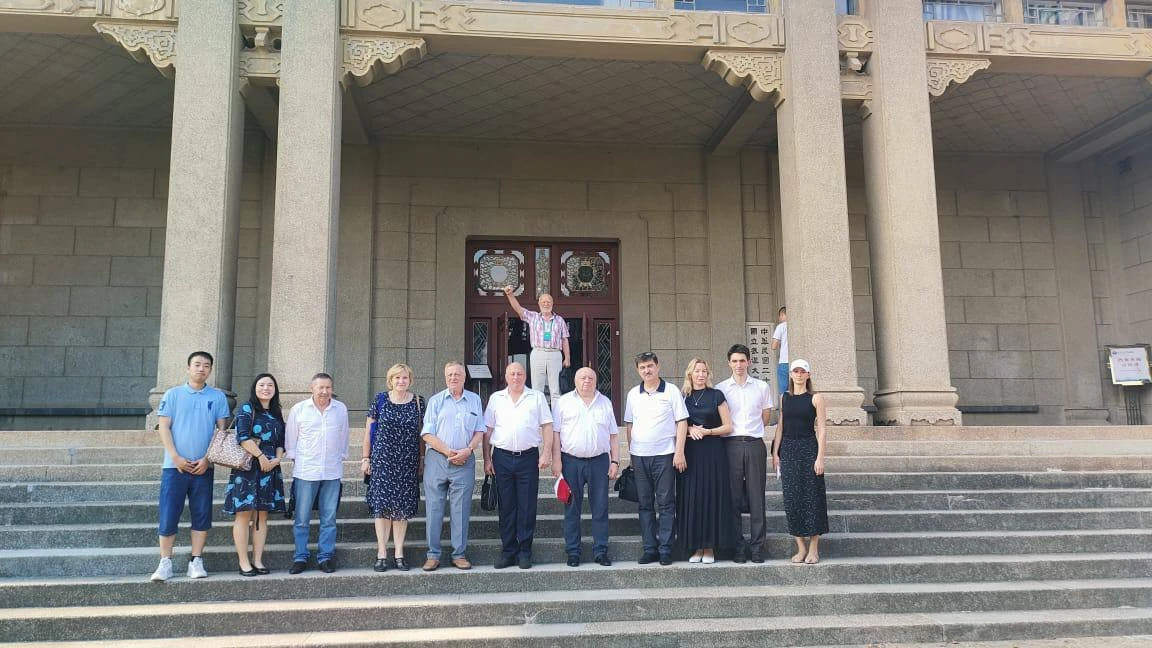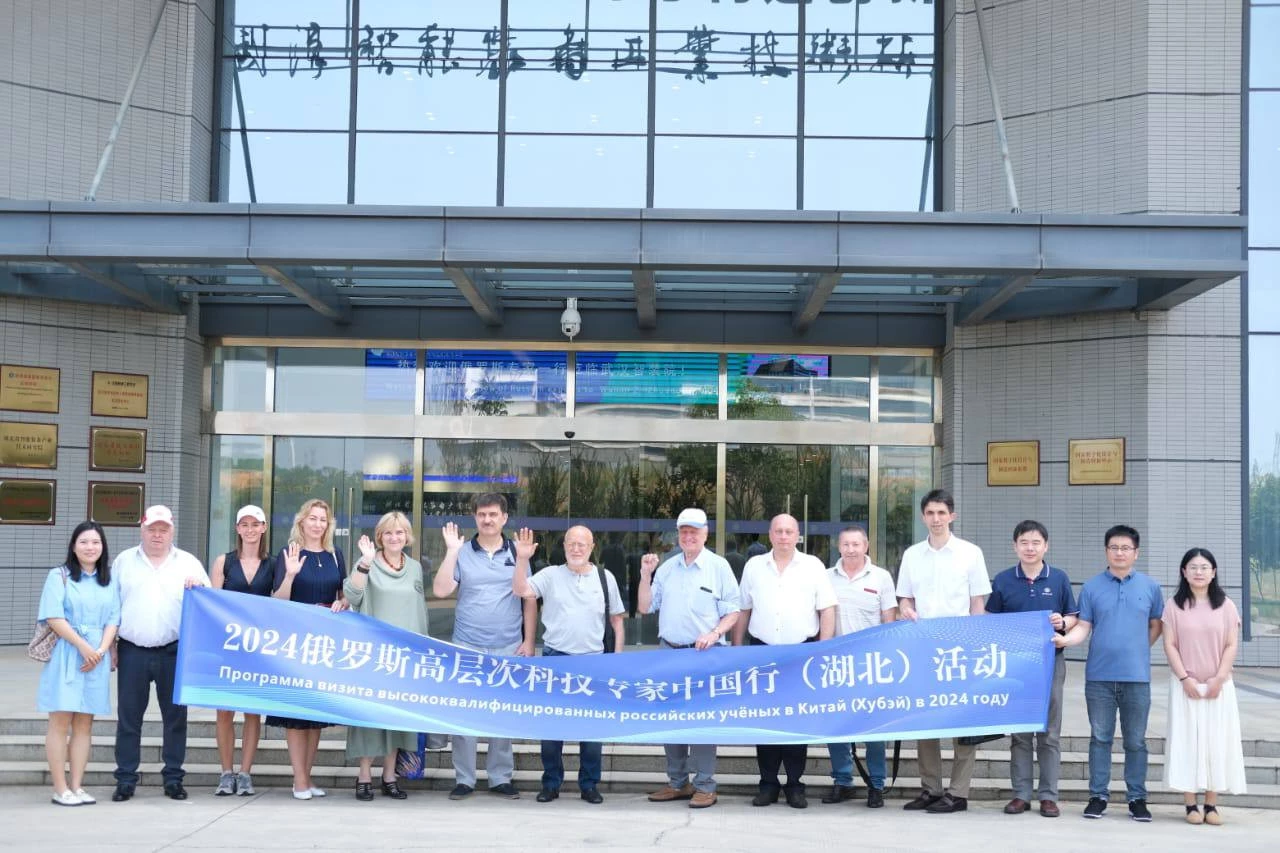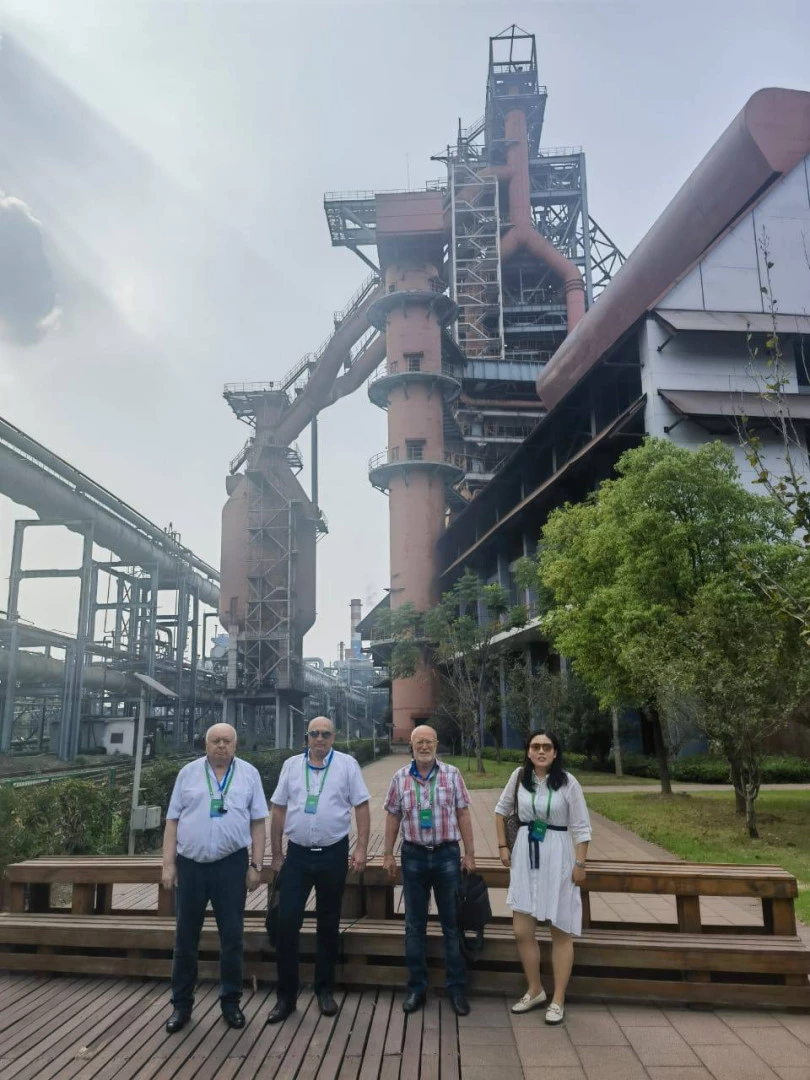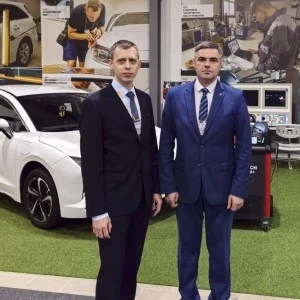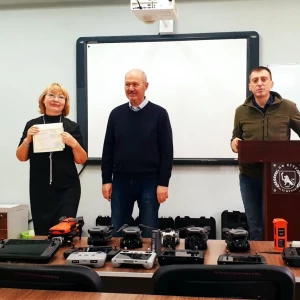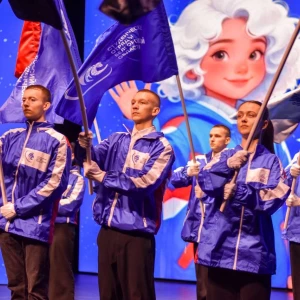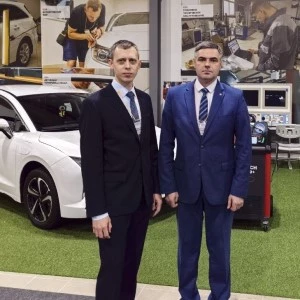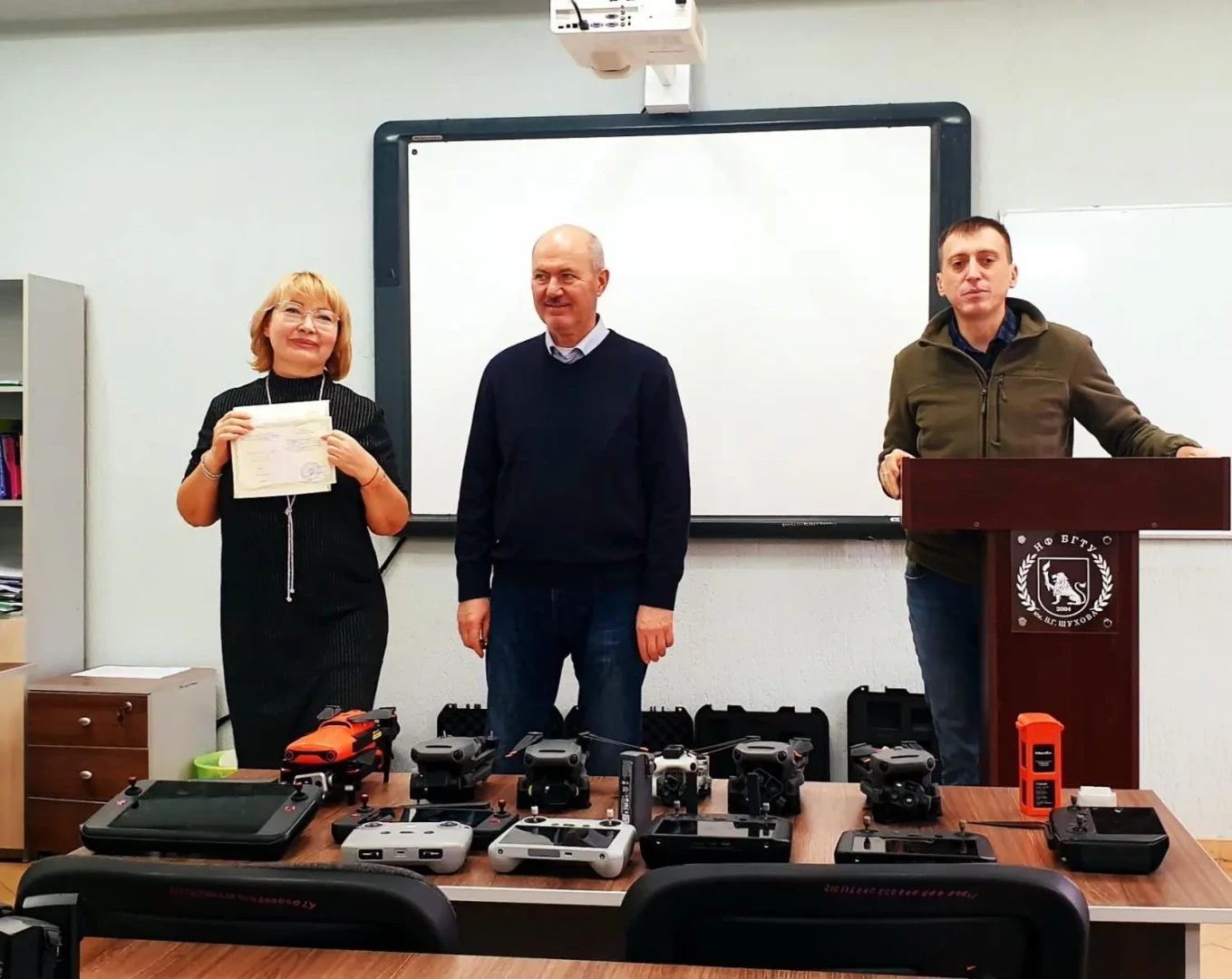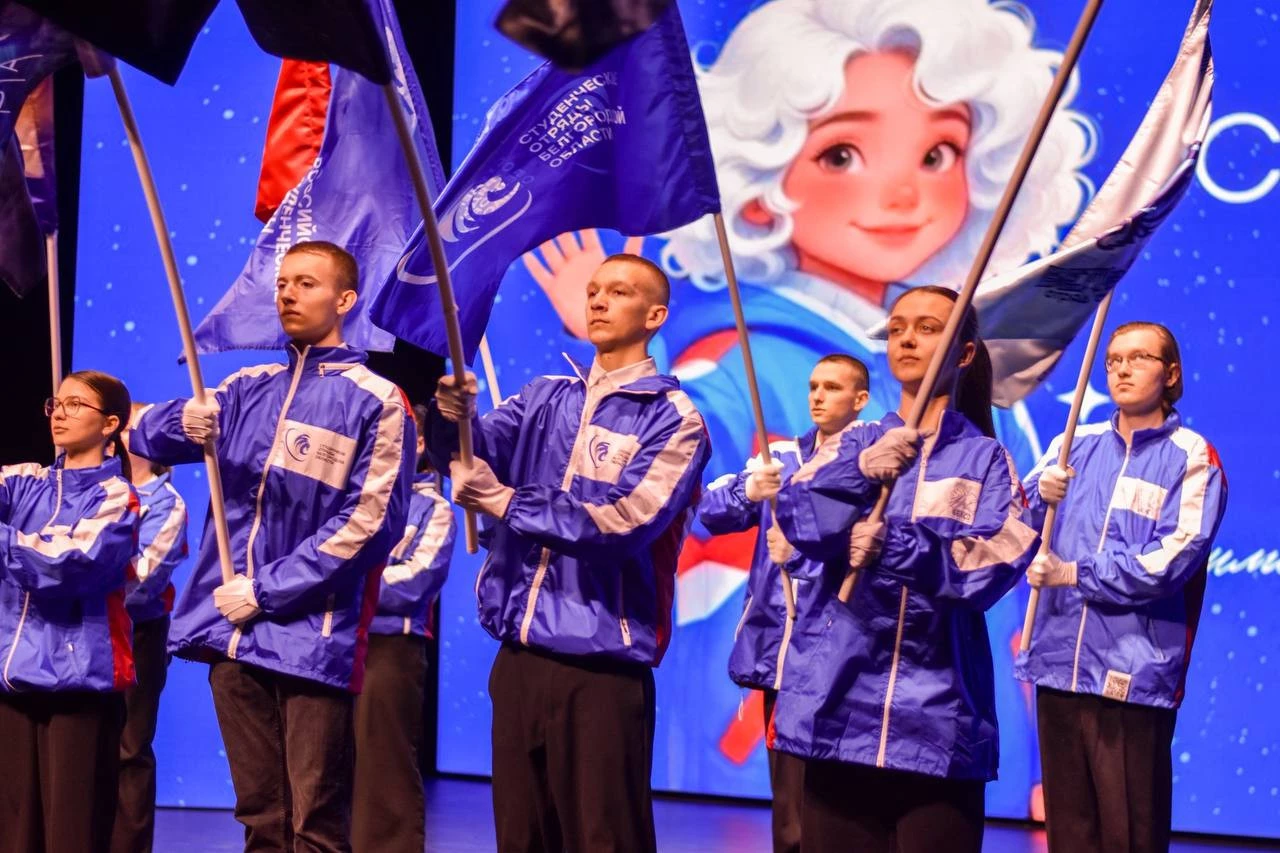Professor Valery Lesovik took part in a scientific conference in China
Head of the Department of Construction Materials Science, Products and Structures of Belgorod State Technological University named after V.G. Shukhov, Corresponding Member of the Russian Academy of Academy of Sciences, Doctor of Technical Sciences, Professor, Honored Scientist of the Russian Federation, Honored Worker of Higher Education of Russia Valery Lesovik, as part of a delegation of highly qualified Russian scientists and representatives of scientific organizations, paid a working visit to China.
The business trip, organized by RosSNIO, the Russian Academy of Sciences and the Department of Science and Technology of Hubei Province, took place from September 1 to 7. Together with his colleagues, Valery Lesovik visited universities in China, where he delivered a report “Improving the quality of human life is a strategic task of scientists around the world,” based on the theoretical principles of the science “Geonics.Geomimetics,” which he authored and which is recognized throughout the world. Within the framework of this science, the scientist discovered two laws: the law of structure affinity, the law of similarity, and the theory of technogenic metasomatism in building materials science.
“The introduction of the principles of “Geonics.Geomimetics” will help to solve many problems and increase not only the quality of human life, but its duration. Currently, Russia ranks 139th in the world in terms of life expectancy. We are constantly under stress. The construction of houses currently meets two criteria - no collapse and no cold. But there is noise aggression, which means soundproofing materials are needed. Strong magnetic storms are dangerous for weather-sensitive people. And new materials will protect against negative man-made and natural processes. And then anyone will live in comfortable conditions for at least 120 years. At the beginning of the 20th century there was a slogan: Workers of all countries, unite! And in the 21st century, I proposed the slogan: Scientists and engineers of all countries, unite! Despite our busy lives, we must be actively involved in resolving geopolitical issues and raising patriots for the sake of peace on Earth,” shared Valery Lesovik.
The Russian delegation included the director of the International Institute of Logistics, Resource Saving and Technological Innovation of the Russian University of Chemical Technology named after D.I. Mendeleev, chief researcher at the Institute of General and Inorganic Chemistry named after N. S. Kurnakov of the Russian Academy of Sciences, academician of the Russian Academy of Sciences Valery Meshalkin, director of the educational institution "Krasnoyarsk Regional House of Science and Technology of the Russian Union of Scientific and Engineering Public Associations", Professor of the Federal State Autonomous Institution of Higher Education "Siberian Federal University", Doctor of Technical Sciences. Igor Kovalev, Deputy Director for Research, Federal Research Center “Informatics and Management” of the Russian Academy of Sciences Rostislav Razumchik, Doctor of Technical Sciences, Professor of the Higher School of Management and Cyberphysical Systems, Director of the scientific and technological complex “Mathematical modeling and intelligent control systems” of the Peter the Great St. Petersburg State Polytechnic University Vyacheslav Shkodyrev, Head of the Laboratory of Steel and Ferroalloys of the Institute of Metallurgy of the Ural Branch of the Russian Academy Sciences, Corresponding Member of the Russian Academy of Sciences Oleg Zayakin and others.
The visit program was intense. The delegation visited Huazhong University of Science and Technology, a national key university focused on comprehensive research, a member of the China-Europe Platform for Engineering Education and Medical Construction Alliance, the International Cooperation Network for Applied Science and Technology and the Global Energy Internet University Alliance. The staff consists of more than 3,700 full-time teachers. The university is a national demonstration university for deepening education reform in innovation and entrepreneurship, and a demonstration base for teaching in China from the Ministry of Education.
Another point of the visit was the Institute of Artificial Intelligence at Wuhan University, which has created a large interdisciplinary research platform to solve key fundamental theoretical problems in the field of artificial intelligence and overcome technological cardinal problems. The guests also visited the Wuhan Artificial Intelligence Computing Center and the Wuhan Supercomputing Center (Double Center).
The main goal of the dual centers is to build the country's leading multi-functional computing power platform as a pilot zone for innovative artificial intelligence applications in Wuhan and a national pilot zone for the innovative development of the next generation of artificial intelligence.
At the BAOWU China Steel Corporation in Wuhan, which was built with Soviet assistance in 1953, meeting participants discussed the use of waste and the possibility of searching for raw materials. Russian scientists also visited the Wuhan Institute of Artificial Intelligence of Beijing University and the Wuhan Research Institute of Industrial Technology and Intelligent Equipment.
At the Wuhan Textile University, specializing in engineering sciences, they became interested in the issue of textile concrete, which was developed by Valery Lesovik’s graduate student Dmitry Popov. Currently, a graduate of BSTU named after Shukhov heads a department for the production of additives in concrete mixtures in Krasnodar region.
The integrated use of construction waste, including for the creation of fortifications, was discussed at the Wuhan University of Science and Technology. The university is developing key high-temperature refractory and high-performance steel materials, supporting the economic construction of Hubei Province and the country as a whole.
The topic of discussion at the Wuhan Intelligent Technology Company, which specializes in the research and application of technologies for autonomous intelligent driving, was technology to reduce traffic accidents. Professor Valery Lesovik in his speech focused on the main provisions of “Geonics.Geomimetics”: from the development of new generation composites, improving the quality of human life, architectural geonics, the use of energy and geological and cosmochemical processes to the problem of development and coexistence of the organic and inorganic world.
At the end of the business trip, the delegation of Russian scientists also visited the Hubei Nandu New Energy Sources Research Company and the Wuhan Insulation Materials Company.
As a result of the visit, Valery Lesovik was asked to consider the possibility of creating an international scientific and educational center “Theory and Practice of Improving the Quality of Life,” which would include leading scientists from different countries.


